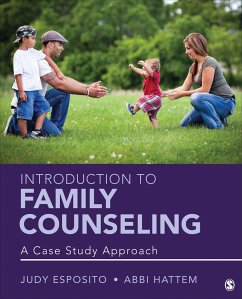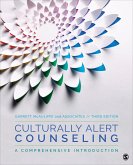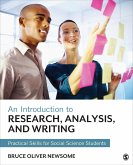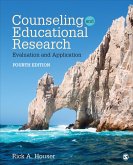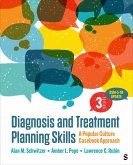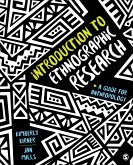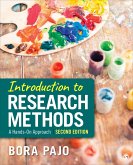- Broschiertes Buch
- Merkliste
- Auf die Merkliste
- Bewerten Bewerten
- Teilen
- Produkt teilen
- Produkterinnerung
- Produkterinnerung
Authors Judy Esposito and Abbi Hattem present basic knowledge on working with families and apply various theoretical models to cases that run throughout the text.
Andere Kunden interessierten sich auch für
![Culturally Alert Counseling Culturally Alert Counseling]() Culturally Alert Counseling200,99 €
Culturally Alert Counseling200,99 €![An Introduction to Research, Analysis, and Writing An Introduction to Research, Analysis, and Writing]() Bruce Oliver NewsomeAn Introduction to Research, Analysis, and Writing125,99 €
Bruce Oliver NewsomeAn Introduction to Research, Analysis, and Writing125,99 €![Online Counselor Education Online Counselor Education]() Online Counselor Education168,99 €
Online Counselor Education168,99 €![Counseling and Educational Research Counseling and Educational Research]() Rick A. HouserCounseling and Educational Research198,99 €
Rick A. HouserCounseling and Educational Research198,99 €![Diagnosis and Treatment Planning Skills Diagnosis and Treatment Planning Skills]() Alan M. SchwitzerDiagnosis and Treatment Planning Skills154,99 €
Alan M. SchwitzerDiagnosis and Treatment Planning Skills154,99 €![Introduction to Ethnographic Research Introduction to Ethnographic Research]() Kimberly Kirner (CSU Northridge)Introduction to Ethnographic Research125,99 €
Kimberly Kirner (CSU Northridge)Introduction to Ethnographic Research125,99 €![Introduction to Research Methods Introduction to Research Methods]() Bora PajoIntroduction to Research Methods146,99 €
Bora PajoIntroduction to Research Methods146,99 €-
-
-
Authors Judy Esposito and Abbi Hattem present basic knowledge on working with families and apply various theoretical models to cases that run throughout the text.
Hinweis: Dieser Artikel kann nur an eine deutsche Lieferadresse ausgeliefert werden.
Hinweis: Dieser Artikel kann nur an eine deutsche Lieferadresse ausgeliefert werden.
Produktdetails
- Produktdetails
- Verlag: SAGE Publications Inc
- Seitenzahl: 368
- Erscheinungstermin: 21. Dezember 2015
- Englisch
- Abmessung: 231mm x 185mm x 20mm
- Gewicht: 620g
- ISBN-13: 9781483351766
- ISBN-10: 1483351769
- Artikelnr.: 42992079
- Herstellerkennzeichnung
- Libri GmbH
- Europaallee 1
- 36244 Bad Hersfeld
- gpsr@libri.de
- Verlag: SAGE Publications Inc
- Seitenzahl: 368
- Erscheinungstermin: 21. Dezember 2015
- Englisch
- Abmessung: 231mm x 185mm x 20mm
- Gewicht: 620g
- ISBN-13: 9781483351766
- ISBN-10: 1483351769
- Artikelnr.: 42992079
- Herstellerkennzeichnung
- Libri GmbH
- Europaallee 1
- 36244 Bad Hersfeld
- gpsr@libri.de
Judy Folmar, Ph.D., is an associate professor and Chair of the Department of Human Service Studies at Elon University in North Carolina. A licensed professional counselor and former school counselor, Dr. Folmar specializes in play therapy with children and families. She lives in Greensboro, North Carolina; and enjoys spending time with her sons, Ben and Patrick, her dog, Cosmo and her cat, Sadie.
Part I: Introduction to the Family Chapter 1: The Manning-Kelly Family Cast List Genogram Presenting Problem History of the Presenting Problem Social Support Clinical Observations and Impressions Preliminary Assessment Theoretical Conceptualization Conclusion Chapter 2: Families and the Family Life Cycle The Family Life Cycle Conclusion Chapter 3: Assessing Families Traditionally and Creatively Traditional Assessment Methods Lifestyle Questionnaire Family Sculpting Christinäs Family Sculpture Family Scripting Family Play Therapy Family Puppet Shows Family Build-A-House Family Aquarium Family Play Genograms Conclusion Part II: Theories of Family Counseling Chapter 4: The Family Systems Approach to Family Counseling Origins of Family Counseling Family Systems and Family Dynamics Family Subsystems Circular Causation and Feedback Loops Homeostasis and Equilibrium Family Rules First and Second Order Change Second Order Cybernetics Function of the Presenting Problem in the Family Family Resiliency Systemic Assessment of the Manning-Kelly Family Conclusions Chapter 5: Multi-Generational Family Counseling Emotional Fusion and Differentiation of Self Triangles Nuclear Family Emotional Process Family Projection Process Cut-Offs Multigenerational Transmissions Family Roles Sibling Position Societal Emotional Process Genograms Conclusions Chapter 6: Structural Family Counseling Structural Family Counseling Concepts Structural Family Counseling Using Structural Family Counseling with the Manning-Kelly Family Summary and Conclusions Chapter 7: Experiential Family Counseling What is Experiential Counseling? Experiencing the Emotional Layer of the Family The Family System Experiential Counseling Interventions Virginia Satir
s Family Growth Model Using Experiential Counseling with the Manning-Kelly Family Conclusions Chapter 8: Other Approaches to Family Counseling Introduction Adlerian Family Counseling Cognitive Behavioral Therapy Post-Modern Integrative Family Counseling Conclusion Part III: Other Aspects of Family Counseling Chapter 9: Special Topics in Family Counseling Multicultural Families LGBTQIA Families Single-Parent Families Blended Families Families with Aging Members Families with Biomedical Conditions Families Coping with Mental Health and Substance Abuse Disorders Domestic Violence Conclusions Chapter 10: The Counselor
s Experience Working with Families The Power of Family Systems How Families Induce Family Counselors Managing Multiple Relationships Comfort with Diversity Experiencing the Family Experiencing the Manning-Kelly and Jones Family Self-Awareness, Self-Care, & Ethical Practice [+plan, bal own fam] The School Counselor
s Experience Conclusions Chapter 11: Ethics of Family Counseling Introduction Protecting Clients Reporting Laws Law and Ethics Referrals Self-Care Scope of Practice Ethical Decision-Making Model Conclusions Part IV: Current Trends in Family Counseling Chapter 12: Family Issues Requiring Services Beyond Counseling Cultural Competence Working with Multicultural Families LGBTQIA Single-Parent Families Blended Families Families with Aging Members Families with Biomedical Conditions Families Coping with Mental Illness and Substance Abuse Disorders Domestic Violence Conclusion Chapter 13: Services Available to Families Social Services School Counselors and School Social Workers In-Home Services Juvenile Justice and Delinquency Prevention Respite Care in Group Homes Wilderness Therapy Programs and Camps Employee Assistance Programs Support for Military Families Faith-Based Support Programs Non-Profit Agencies Referral Process Chapter 14: What
s Next for the Manning-Kelly Family? Introduction Family Counseling What
s Next for the Manning-Kelly and Jones Family? What
s Next for the Individual Family Members? Family Secrets Termination What
s Next for You as a Family Counselor? Conclusion
s Family Growth Model Using Experiential Counseling with the Manning-Kelly Family Conclusions Chapter 8: Other Approaches to Family Counseling Introduction Adlerian Family Counseling Cognitive Behavioral Therapy Post-Modern Integrative Family Counseling Conclusion Part III: Other Aspects of Family Counseling Chapter 9: Special Topics in Family Counseling Multicultural Families LGBTQIA Families Single-Parent Families Blended Families Families with Aging Members Families with Biomedical Conditions Families Coping with Mental Health and Substance Abuse Disorders Domestic Violence Conclusions Chapter 10: The Counselor
s Experience Working with Families The Power of Family Systems How Families Induce Family Counselors Managing Multiple Relationships Comfort with Diversity Experiencing the Family Experiencing the Manning-Kelly and Jones Family Self-Awareness, Self-Care, & Ethical Practice [+plan, bal own fam] The School Counselor
s Experience Conclusions Chapter 11: Ethics of Family Counseling Introduction Protecting Clients Reporting Laws Law and Ethics Referrals Self-Care Scope of Practice Ethical Decision-Making Model Conclusions Part IV: Current Trends in Family Counseling Chapter 12: Family Issues Requiring Services Beyond Counseling Cultural Competence Working with Multicultural Families LGBTQIA Single-Parent Families Blended Families Families with Aging Members Families with Biomedical Conditions Families Coping with Mental Illness and Substance Abuse Disorders Domestic Violence Conclusion Chapter 13: Services Available to Families Social Services School Counselors and School Social Workers In-Home Services Juvenile Justice and Delinquency Prevention Respite Care in Group Homes Wilderness Therapy Programs and Camps Employee Assistance Programs Support for Military Families Faith-Based Support Programs Non-Profit Agencies Referral Process Chapter 14: What
s Next for the Manning-Kelly Family? Introduction Family Counseling What
s Next for the Manning-Kelly and Jones Family? What
s Next for the Individual Family Members? Family Secrets Termination What
s Next for You as a Family Counselor? Conclusion
Part I: Introduction to the Family Chapter 1: The Manning-Kelly Family Cast List Genogram Presenting Problem History of the Presenting Problem Social Support Clinical Observations and Impressions Preliminary Assessment Theoretical Conceptualization Conclusion Chapter 2: Families and the Family Life Cycle The Family Life Cycle Conclusion Chapter 3: Assessing Families Traditionally and Creatively Traditional Assessment Methods Lifestyle Questionnaire Family Sculpting Christinäs Family Sculpture Family Scripting Family Play Therapy Family Puppet Shows Family Build-A-House Family Aquarium Family Play Genograms Conclusion Part II: Theories of Family Counseling Chapter 4: The Family Systems Approach to Family Counseling Origins of Family Counseling Family Systems and Family Dynamics Family Subsystems Circular Causation and Feedback Loops Homeostasis and Equilibrium Family Rules First and Second Order Change Second Order Cybernetics Function of the Presenting Problem in the Family Family Resiliency Systemic Assessment of the Manning-Kelly Family Conclusions Chapter 5: Multi-Generational Family Counseling Emotional Fusion and Differentiation of Self Triangles Nuclear Family Emotional Process Family Projection Process Cut-Offs Multigenerational Transmissions Family Roles Sibling Position Societal Emotional Process Genograms Conclusions Chapter 6: Structural Family Counseling Structural Family Counseling Concepts Structural Family Counseling Using Structural Family Counseling with the Manning-Kelly Family Summary and Conclusions Chapter 7: Experiential Family Counseling What is Experiential Counseling? Experiencing the Emotional Layer of the Family The Family System Experiential Counseling Interventions Virginia Satir
s Family Growth Model Using Experiential Counseling with the Manning-Kelly Family Conclusions Chapter 8: Other Approaches to Family Counseling Introduction Adlerian Family Counseling Cognitive Behavioral Therapy Post-Modern Integrative Family Counseling Conclusion Part III: Other Aspects of Family Counseling Chapter 9: Special Topics in Family Counseling Multicultural Families LGBTQIA Families Single-Parent Families Blended Families Families with Aging Members Families with Biomedical Conditions Families Coping with Mental Health and Substance Abuse Disorders Domestic Violence Conclusions Chapter 10: The Counselor
s Experience Working with Families The Power of Family Systems How Families Induce Family Counselors Managing Multiple Relationships Comfort with Diversity Experiencing the Family Experiencing the Manning-Kelly and Jones Family Self-Awareness, Self-Care, & Ethical Practice [+plan, bal own fam] The School Counselor
s Experience Conclusions Chapter 11: Ethics of Family Counseling Introduction Protecting Clients Reporting Laws Law and Ethics Referrals Self-Care Scope of Practice Ethical Decision-Making Model Conclusions Part IV: Current Trends in Family Counseling Chapter 12: Family Issues Requiring Services Beyond Counseling Cultural Competence Working with Multicultural Families LGBTQIA Single-Parent Families Blended Families Families with Aging Members Families with Biomedical Conditions Families Coping with Mental Illness and Substance Abuse Disorders Domestic Violence Conclusion Chapter 13: Services Available to Families Social Services School Counselors and School Social Workers In-Home Services Juvenile Justice and Delinquency Prevention Respite Care in Group Homes Wilderness Therapy Programs and Camps Employee Assistance Programs Support for Military Families Faith-Based Support Programs Non-Profit Agencies Referral Process Chapter 14: What
s Next for the Manning-Kelly Family? Introduction Family Counseling What
s Next for the Manning-Kelly and Jones Family? What
s Next for the Individual Family Members? Family Secrets Termination What
s Next for You as a Family Counselor? Conclusion
s Family Growth Model Using Experiential Counseling with the Manning-Kelly Family Conclusions Chapter 8: Other Approaches to Family Counseling Introduction Adlerian Family Counseling Cognitive Behavioral Therapy Post-Modern Integrative Family Counseling Conclusion Part III: Other Aspects of Family Counseling Chapter 9: Special Topics in Family Counseling Multicultural Families LGBTQIA Families Single-Parent Families Blended Families Families with Aging Members Families with Biomedical Conditions Families Coping with Mental Health and Substance Abuse Disorders Domestic Violence Conclusions Chapter 10: The Counselor
s Experience Working with Families The Power of Family Systems How Families Induce Family Counselors Managing Multiple Relationships Comfort with Diversity Experiencing the Family Experiencing the Manning-Kelly and Jones Family Self-Awareness, Self-Care, & Ethical Practice [+plan, bal own fam] The School Counselor
s Experience Conclusions Chapter 11: Ethics of Family Counseling Introduction Protecting Clients Reporting Laws Law and Ethics Referrals Self-Care Scope of Practice Ethical Decision-Making Model Conclusions Part IV: Current Trends in Family Counseling Chapter 12: Family Issues Requiring Services Beyond Counseling Cultural Competence Working with Multicultural Families LGBTQIA Single-Parent Families Blended Families Families with Aging Members Families with Biomedical Conditions Families Coping with Mental Illness and Substance Abuse Disorders Domestic Violence Conclusion Chapter 13: Services Available to Families Social Services School Counselors and School Social Workers In-Home Services Juvenile Justice and Delinquency Prevention Respite Care in Group Homes Wilderness Therapy Programs and Camps Employee Assistance Programs Support for Military Families Faith-Based Support Programs Non-Profit Agencies Referral Process Chapter 14: What
s Next for the Manning-Kelly Family? Introduction Family Counseling What
s Next for the Manning-Kelly and Jones Family? What
s Next for the Individual Family Members? Family Secrets Termination What
s Next for You as a Family Counselor? Conclusion

